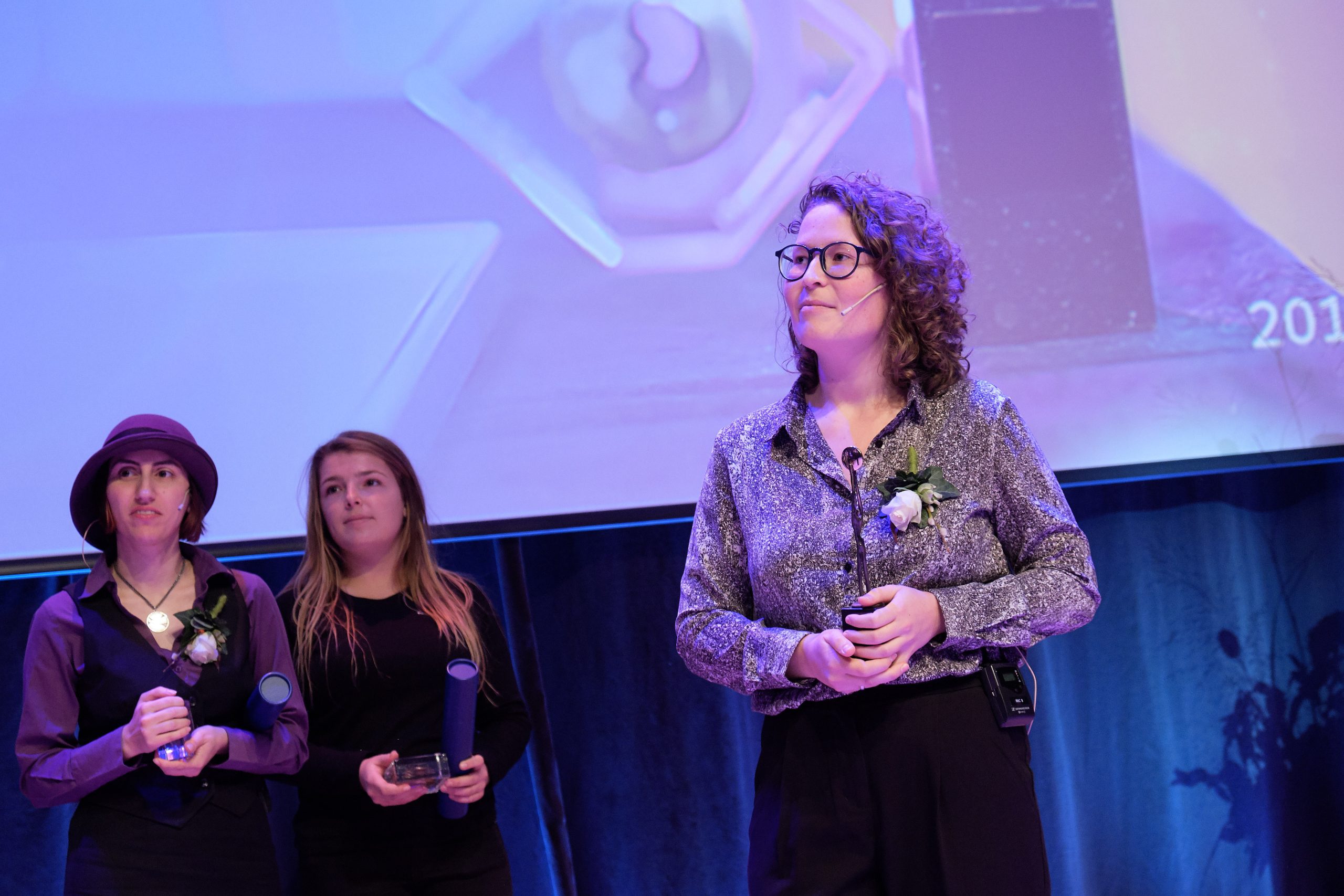Jet Gispen was voted Best Graduate 2017. She graduated from Industrial Design with a thesis on ethics in the design process. “It is time for designers to take responsibility for their design choices.”
Best Graduate Jet Gispen. (Foto: Thomas Koopman)
Lees dit artikel hier in het Nederlands.
Your graduation research focuses on incorporating ethics into the design process. Why is that necessary?
“Almost everything around us has been designed by someone, so designers have a huge impact on how people live. Increasingly, we see that products and services can also have negative effects. Smartphone addiction or the unabashed collection of personal data by companies makes this painfully clear. That is why I urge designers to be aware of the impact of their work during the design process – when the design is still under development – and to take a critical look at it. It is time for designers to take responsibility for their design choices.”
Can you explain how designers might take ethical issues into account?
“It is important that this happens during the design process and preferably at several different moments. To help designers, I created a toolkit with seven ethical tools. These are practical exercises that fit easily within the creative design process. Examples are an ethical analysis of existing designs, a game to use ethics as an inspiration, and a tool to map the relevant moral values within a design project. These tools can be downloaded for free from www.ethicsfordesigners.com. In this way I hope to make ethics more accessible and attractive for designers.”
Ethics courses have not long been part of the IDE curriculum. Did you miss that as a student?
“As designers, we are trained to solve problems and improve people’s lives. Rarely do we consider what ‘better’ actually is. I always found it very striking that no ethics is taught at IDE. That is why I am very pleased that an ethics elective has been announced. I myself have been allowed to give lectures, and the responses have been very positive. Ethics is an incredibly fascinating subject that challenges you to look critically at your own work and to engage in discussions with others. “
You are the best graduate of this year. Have you always striven for the highest marks?
“I am a perfectionist by nature. During my study I have always tried to get as much out of my projects as possible. Especially during the master Design for Interaction, I felt completely at home. This motivated me to really go for it. During projects I got to know a lot of inspiring people. It gives me a lot of energy to work together with others and to combine talents.”
Studying is hard work under high pressure nowadays. Did you experience that, too?
“Yes, I certainly experienced studying as hard work. Although I do think you are personally responsible for keeping control of the situation. It is up to you to make something beautiful out of it. Moreover, you can do so many other fun and valuable things besides your studies. For example, I learned a lot from the study trip to Dublin that we organized with the master study association, such as how I can best present myself to companies.”
Do you have any tips for students who want to follow in your footsteps?
“I would especially advise students not to focus on that. Passion for your study and your distinguishing features are worth much more than high marks. Do not be afraid to set up a project yourself and tackle a big subject for your graduation project. As long as it is a topic that you are enthusiastic about, you can take it in any direction. It is a huge opportunity to define and execute your project exactly as you want it. Your graduation project can make an impression with potential employers after you graduate.”
What are your future plans?
“I am working on setting up the ethics course for the bachelor Industrial Design. After that, I would like to work for a design agency that is not afraid to ask difficult questions. That way, I can have a direct impact on design projects. In addition, I will continue with my Ethics for Designers project. I hope that as many designers as possible will learn how to work with ethics and that it will become normal to do so.”
Would you like to know more about the other nominees for the title Best Graduate 2017? Read about them here.
Do you have a question or comment about this article?
s.m.bonger@tudelft.nl


Comments are closed.